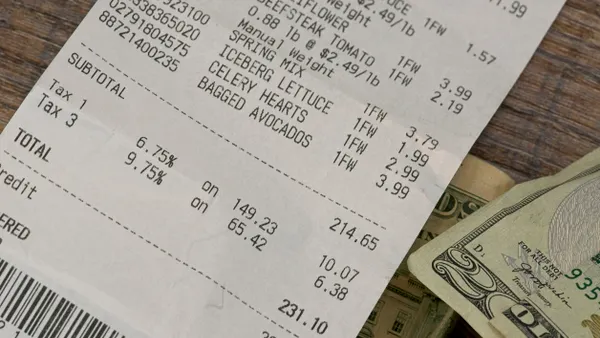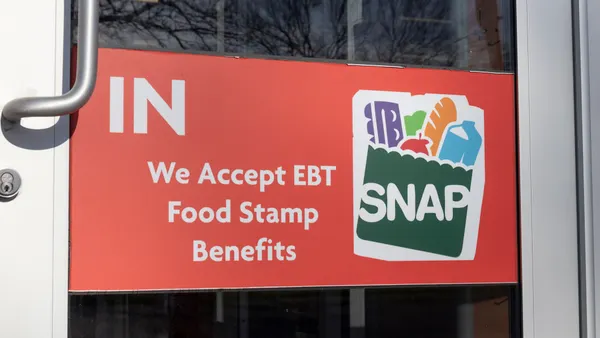Dive Brief:
- The National Grocers Association (NGA) said Tuesday it has sent comments to the USDA on the agency’s proposed changes to the Special Supplemental Nutrition Program for Women, Infants and Children (WIC).
- The trade association, which represents independent supermarkets, said it supports many of the recommendations, including expanded product offerings and pack size flexibility, but is concerned about state-level stocking requirements.
- “Over the years, NGA members have struggled and have been penalized for not meeting state-level stocking requirements. These requirements often lead to food waste and economic losses for stores,” Stephanie Johnson, NGA’s vice president of government relations, told the USDA.
Dive Insight:
The USDA’s proposed WIC changes, which would cost $4.1 billion over five years, mark the first time in more than a decade that the agency is updating the assistance program, which provides nutritional, educational and immunization services to qualifying low-income women, infants and children.
While each state controls its food package, the USDA rule outlines the requirements for what states can include. The trade group said that the proposed changes give states more flexibility with their food packages, which would make more in-store foods WIC-approved items.
“Overall, the rule seems to take into account the needs of both grocers and beneficiaries. The USDA has listened to our requests for pack size flexibility and the usage of existing package sizes,” the NGA said in a summary of the proposed WIC changes.
The NGA said it also supports the suggestions related to product substitutions and “up to” amounts. The association said the changes would improve the shopping experience for customers and ensure retailers can better meet WIC consumers’ needs.
Some of the changes would expand product selection choices for consumers using WIC benefits. For example, the USDA is proposing adding soy-based yogurts and soy-based cheeses as substitution options for milk and requiring authorization of lactose-free milk. The USDA is also looking to make state agencies allow both dried and canned legumes under WIC, noting that those items can serve as substitutes for eggs.
Other proposed changes include requiring state agencies to authorize at least one other form of fruit and vegetable, such as canned, frozen or dried, in addition to fresh; requiring vendors to stock at least three varieties of vegetables; and prohibiting added fats in infant foods.
State-level stocking requirements, though, can burden retailers, the NGA said.
“We suggest creating an essential foods package with reasonable stocking requirements and an optional foods package with foods that are encouraged and allowed to be sold but do not have stringent stocking requirements,” Johnson wrote in the comments to the USDA. “This will allow our members to meet the needs of their communities while also reducing food waste and economic losses.”
The USDA expects 150 small vendors out of 41,000 vendors to discontinue their participation in WIC because of these changes, the NGA noted.
The Food Industry Association has said the WIC changes would help grocers comply with WIC guidelines by making the program more aligned with available products and offering greater flexibility with packaging.
The USDA’s updates to WIC follow the Biden administration’s unveiling last September of a national strategy focused on healthier eating and ending hunger in the U.S. by 2030.
The efforts also come at a time when food accessibility has received greater attention due to the pandemic, with online shopping as one area of focus. WIC online purchasing pilots are underway in several states, following in the footsteps of the expansion of SNAP online purchasing.











